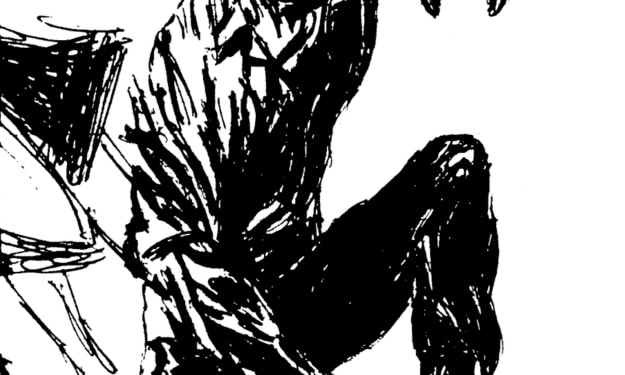An Uncrowned King Chapter 9 Part 5
A Woman of Her Word

“And you’ll scarcely believe me,” Mr Hicks was accustomed to continue, ignorant that by means of a mirror behind him Madame O’Malachy had noticed Nadia approaching her from the other end of the room, and discerned in an instant that her companion was not Caerleon, “but the words were not out of her mouth when I saw Lord Cyril in the distance, with Miss O’Malachy on his arm as white as a sheet, and I knew her mother was right at once. No girl that had just accepted a king ever went about with a face like that.”
“Oh, Mr Hicks, do tell!” his enraptured audience would exclaim; and Mr Hicks would go on to detail how Madame O’Malachy had turned as white as her daughter on seeing her face, but had said calmly that the heat of the room was too much for Miss Nadia, and they must go home; and how she had turned to him with a sorrowful look that went to his heart, and whispered, “My kind friend, do this for us. If any one speaks to you of the matter we were discussing, let it be known that my daughter has refused his Majesty for the reason I feared.”
In fulfilling this parting request Mr Hicks, as a gallant American, and therefore a sworn servant of the fair sex, had spent the remainder of the evening, only pausing to glance at the King as he passed through the hall about half an hour later with set face and firmly closed lips on his way back to the palace, on the plea of illness. To the observer who had noted duly at the beginning of the entertainment that “his Majesty looked extremely well, and conversed affably with the different persons presented to him,” the change spoke volumes; but other people were not quite so ready to accept Madame O’Malachy’s explanation as he was. More than one of the chaperons with whom he touched on the subject gave it as her opinion that the King had informed Miss O’Malachy that he could not, consistently with his duty to the nation, marry her; and that a harrowing scene had ensued. It was extraordinary how widely it was known in the ballroom that something of the kind had occurred, and Mr Hicks found his duty of impressing Madame O’Malachy’s view of the case on his friends to be no sinecure. But he persevered, for he sympathised deeply with her in her disappointment, and he was also sorry for Nadia, who, as he rightly supposed, would have a good deal to endure from her mother on the way home. “Those outspoken, affectionate women can do an astonishing amount of reproaching when they are once worked up,” he said to himself; but he never dreamed of the storm of sarcasm and cruel invective under which Nadia was writhing at the moment.
The next day found Bellaviste society divided into two parties, one of which accepted Madame O’Malachy’s account of the events of the evening before, and believed that an insane pride had driven Nadia to refuse the King; while the other, led by Madame Sertchaieff, and relying on the authority of M. Drakovics, held that his Majesty had, more or less directly, declined to marry her. Madame Sertchaieff was the great lady of Bellaviste. As the wife of the Minister for War (the brother of the Ivan Sertchaieff who had been the last Premier of the late king), she took the lead in the society of the city, and derived no small honour from the fact that her husband was the only member of the Ministry whom M. Drakovics treated on anything approaching a footing of equality. With every desire to make the Thracian army invincible, the Premier was handicapped by an absolute ignorance of military affairs, and since General Sertchaieff had turned his back on his brother and his party to adopt the cause of the revolution, he left all the actual work of the bureau in his hands, and also consulted him frequently on the general policy of the Government. Consequently, when Madame Sertchaieff (it is needless to say that she had not been among the ladies whose eagerness to see Nadia had so deeply scandalised the Premier) averred that she had guessed, from the excitement visible in the King’s manner when he danced with her, that he was screwing up his courage to the point of formally breaking off his relations with Miss O’Malachy, and further hinted that the step had been taken on the advice and with the full approval of M. Drakovics, she carried many of her hearers with her. Curiosity was rife as to what would be the next step on either side; but on the evening after the ball the public excitement was cruelly balked by the news that the O’Malachy family, with the exception of Louis, had left the city. They were gone because it could not but be disagreeable to Miss O’Malachy to run the risk of meeting her rejected lover at every turn, said Mr Hicks and his party; because they had received a secret mandate from the police advising them to depart, said Madame Sertchaieff and her friends; because the O’Malachy and his wife, perceiving that there was no opening in Thracia for their peculiar talents, had determined to return to the service of their Scythian employers, thought Cyril.





Comments
There are no comments for this story
Be the first to respond and start the conversation.